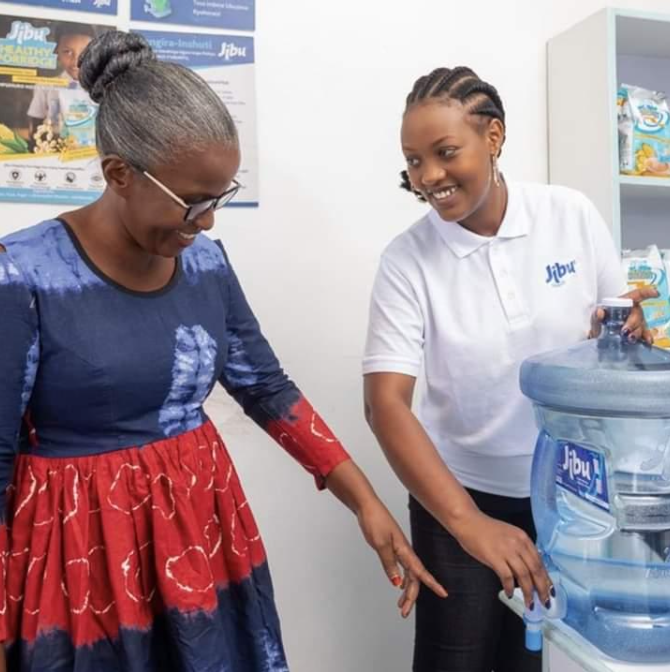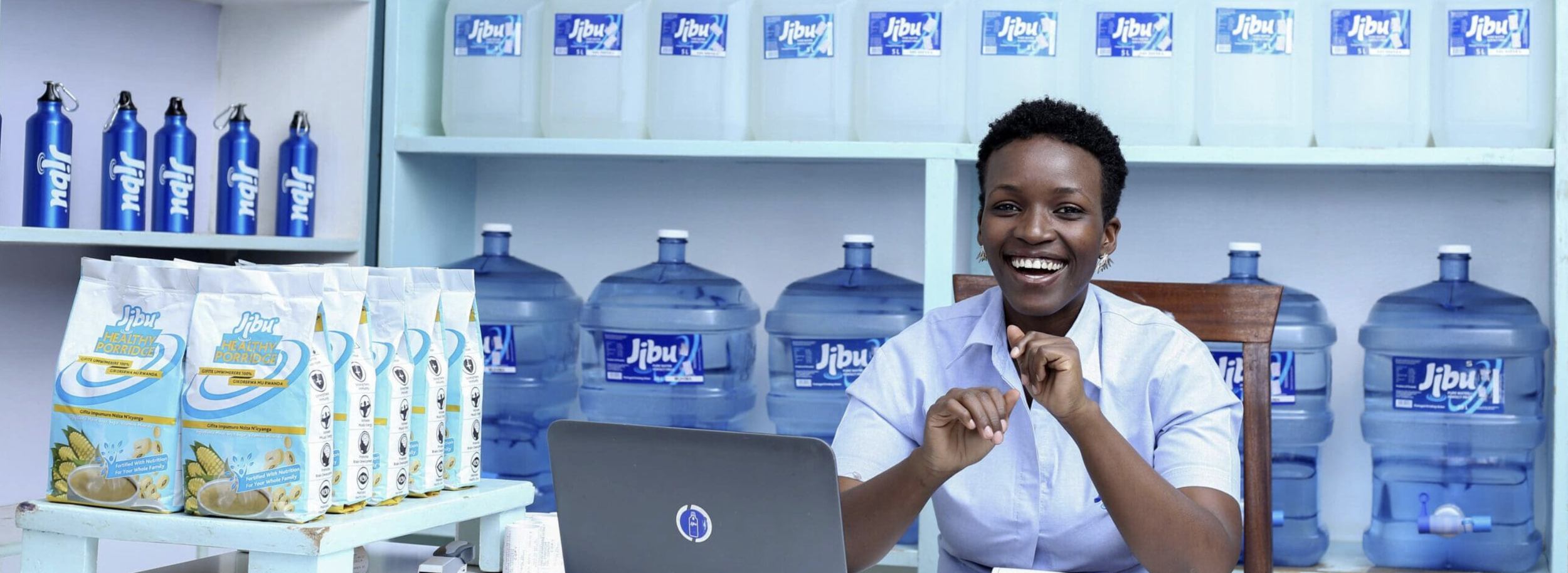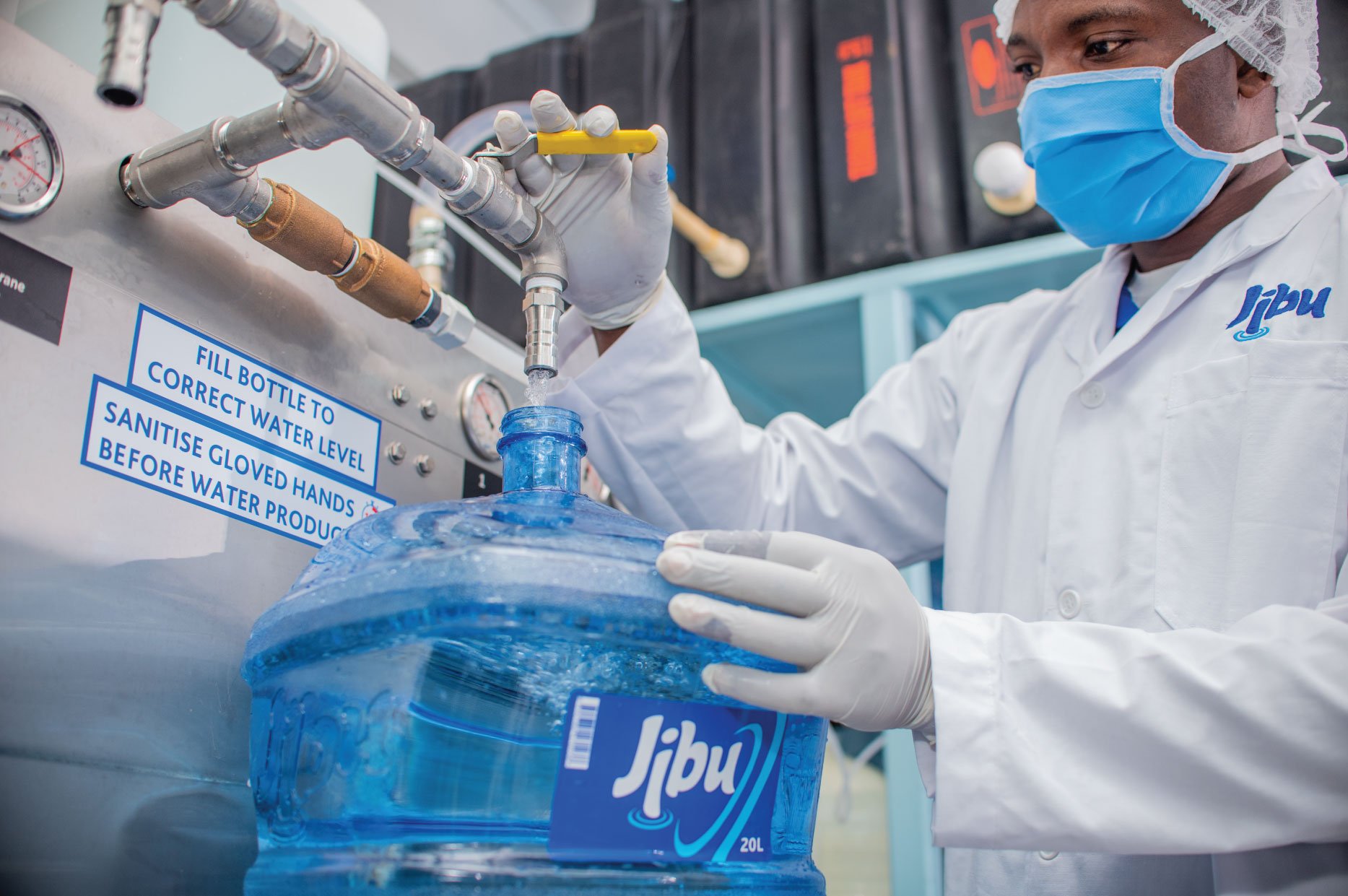Financing solutions for social franchises.
Franchise Impact Solutions Facility
The Challenge
Jibu Co. was seeking an affordable way to finance the expansion of its social franchise business. Opening additional Jibu franchise sites requires an engaged and capable entrepreneur, and also upfront capital to finance all of the equipment necessary to run a safe drinking water franchise (storefront, water filtration equipment unit, utilities, etc.).
Unlike fast food franchises in the United States where franchise owners front their own capital investments, young entrepreneurs in East Africa do not have the capital to finance all of the equipment necessary to launch a franchise. For this reason, Jibu Co. finances those costs itself, allowing the entrepreneur to focus on operations and getting itself up and running to service the local community.
Franchising can be a great way for a business to grow by partnering with independent entrepreneurs. However, traditional franchising requires significant upfront capital from the entrepreneur, which leaves many locked out of the opportunity.
Jibu Co. is a social franchise company focused on empowering emerging market entrepreneurs while providing essential products to improve livelihoods and wellness in East Africa. Jibu capitalizes, equips, and trains entrepreneurs to launch and grow essential service franchises, with drinking water serving as the anchor product. Through this model, Jibu has launched over 160 franchises across six African countries (Rwanda, Kenya, Uganda, Tanzania, DR Congo, Burundi, Ghana and Zambia), where franchisees purify existing water sources in high-density urban and peri-urban communities. This water is then distributed to the neighborhood within walking or delivery distance of their storefronts.
The Solution
Total Impact Capital constructed the Franchise Impact Solutions Facility (FISF), a special purpose vehicle which blends equity, subordinated debt, and senior debt, as well as grant capital, to provide social franchising companies like Jibu Co. access to affordable financing at sustainable interest rates that are otherwise widely unavailable in emerging market communities. FISF has helped to connect Jibu Co. with nearly $2M in affordable debt financing through sale-leaseback agreements with its franchisees’ water filtration equipment assets. FISF purchased a select number of performing franchisees’ water filtration equipment units from Jibu and subsequently leased them back. This provided Jibu with the capital to help finance new franchise sites and expand its reach even further. Jibu pays back the equipment leases to FISF overtime using a portion of the franchise network fees.
This innovative sale-leaseback financial strategy enables Jibu to uphold a low-cost of-entry franchise model for aspiring entrepreneurs, while ensuring Total Impact Capital's investment remains low-risk and achieves high impact. The initial purchase of assets allows for an immediate influx of capital to Jibu, catalyzing its expansion and establishment of new franchises. Upon reaching a certain sales volume, these new franchises can then have their assets purchased by FISF, further bolstering this cycle of sustainable growth.
The Impact
-

Enhancing Access to Safe Water
Access to safe water, like the 100 million liters provided by Jibu, drastically improves livelihoods by reducing health risks and associated costs, while freeing up time for educational and economic pursuits. This vital resource enhances food security, empowers women, and drives community development, collectively uplifting the socio-economic conditions of over 200,000 daily consumers.
-

Supporting Entrepreneurs
One of the unique aspects of FISF’s model is its direct support for Jibu entrepreneurs. By purchasing the assets for franchises and then leasing them back, the SPV allows Jibu to maintain a low cost of entry for franchisees, thereby promoting entrepreneurship in the emerging markets of Africa. Entrepreneurs can then focus on operating and growing their franchises, ultimately selling more water and helping more people access safe drinking water.
-

Sustainability & Expansion
Once the principal value of the lease has been paid down to zero, the ownership of the asset's residual value transfers back to Jibu. Consequently, each franchise becomes self-sustaining in the longer term, with ownership of their operational assets while still contributing to the Jibu network. This circular system enables FISF to grow as new and proven franchisees are added, ensuring the continual expansion and sustainability of Jibu’s operations.
The Future
FISF’s innovative use of a sale-leaseback model in the social franchise sector represents a unique approach to combining social impact with business growth. By existing as a bridge between social franchises and investors, the SPV creates a win-win situation for all parties involved and paves the way for social franchise expansion in emerging markets.
FISF expects to expand its special purpose vehicle funding from 87 to 120 Jibu franchises by 2025, with its sights set on expanding its broader financing solutions services to other social franchisors worldwide.







